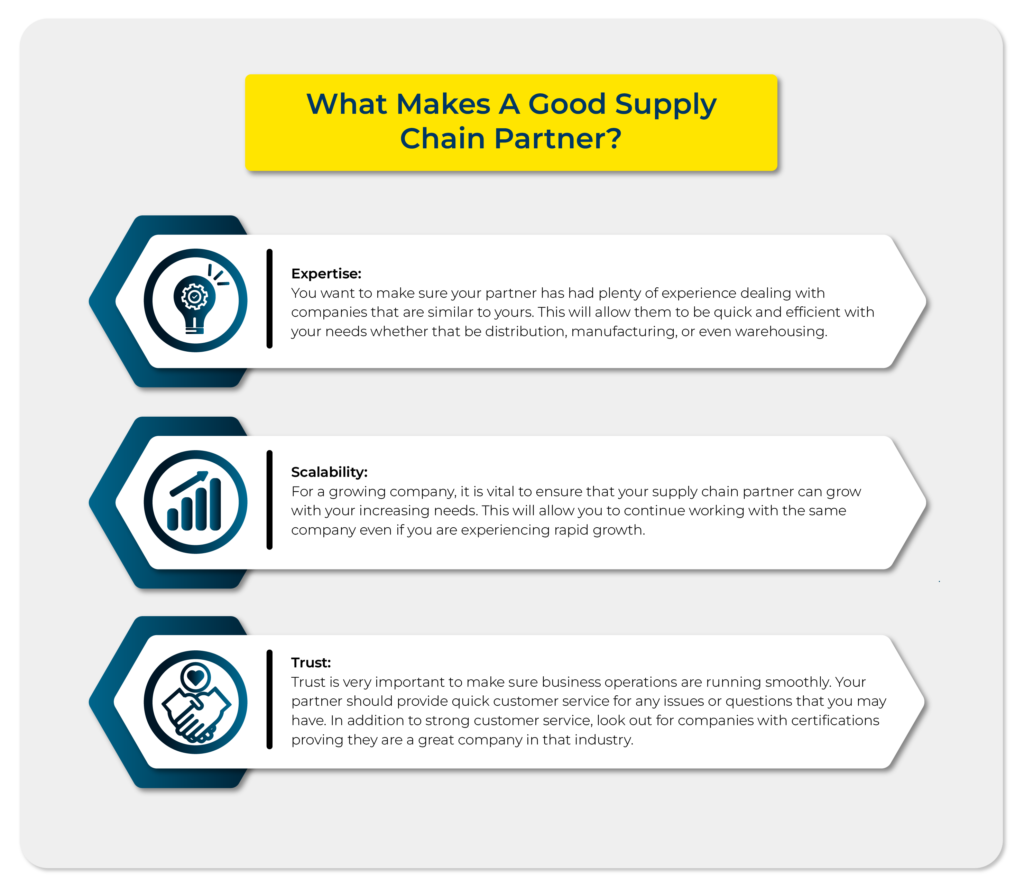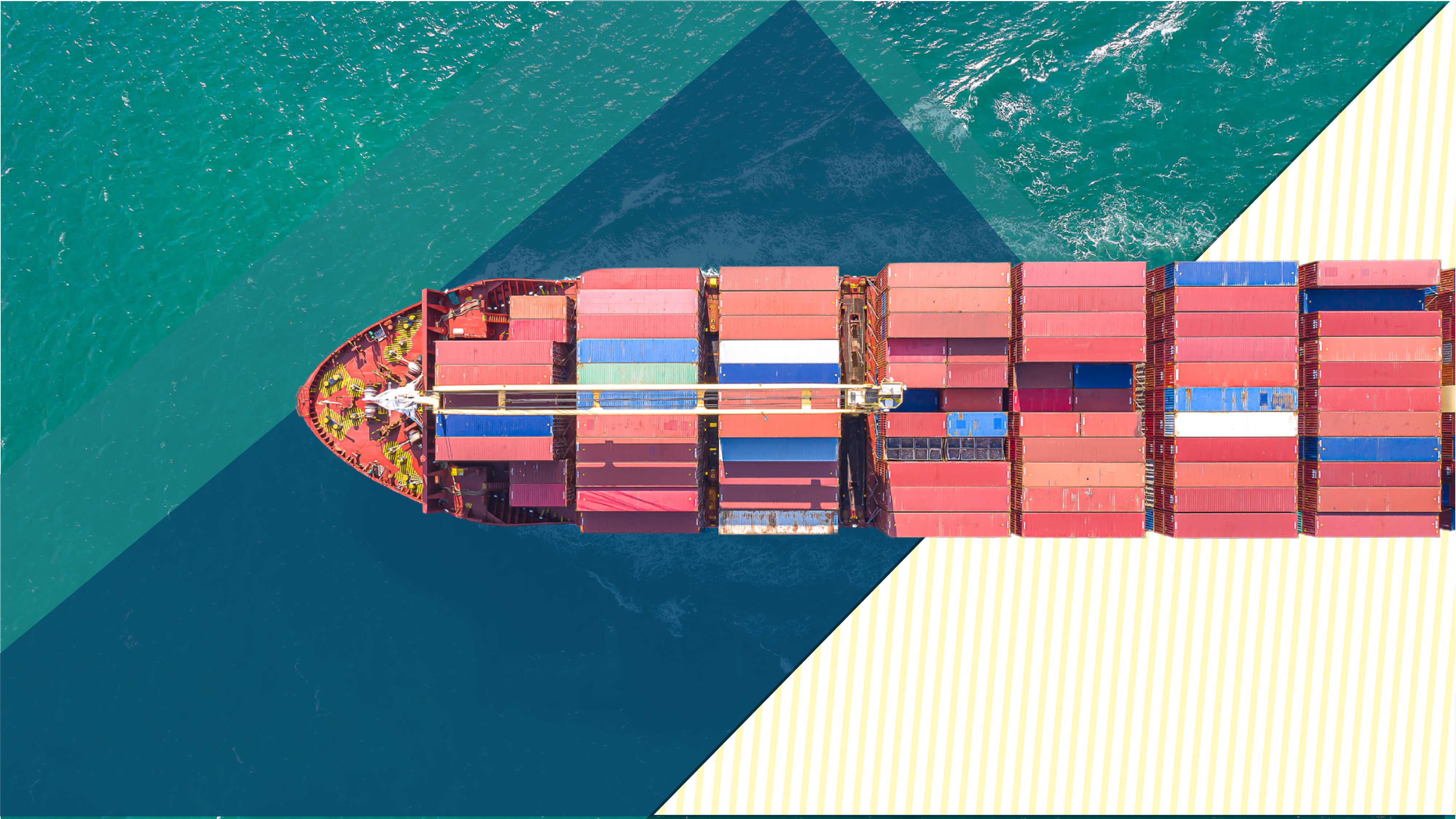A strong supply chain partner is vital to nearly any business. They provide essential services like raw materials or parts, packaging, transportation, inventory management, and distribution of goods to ensure timely and efficient delivery of products to customers. By partnering with the right suppliers, a business can maximize the value it delivers to its end users by focusing on its core competencies. As the business grows, it can outsource more of its supply-chain needs to partners and take advantage of significant cost savings.
Since April 29th is National Supply Chain Day, we want to take a moment to celebrate the supply chain and our company’s role as a link in it.
What is National Supply chain day?
The importance of supply chain services and operations goes back centuries to the infancy of commerce. As technology and transportation capabilities grew alongside burgeoning demand, supply chains started to span across the globe. Today consumers can find nearly any good they desire in a worldwide marketplace–all thanks to supply chain services. In 2020, Georgia Pacific declared April 29th as National Supply Chain Day. On this day, we acknowledge the importance of the global supply chain in the everyday lives of individuals everywhere.
What makes a good supply chain partner?
For companies that are looking for a supply chain partner that will help them grow, it is important to know what makes a good supply chain partner stand out from the thousands of other companies.
Expertise: You want to make sure your partner has had plenty of experience dealing with companies that are similar to yours. This will allow them to be quick and efficient with your needs whether that be distribution, manufacturing, or even warehousing.
Scalability: For a growing company, it is vital to ensure that your supply chain partner can grow with your increasing needs. This will allow you to continue working with the same company even if you are experiencing rapid growth.
Trust: Trust is very important to make sure business operations are running smoothly. Your partner should provide quick customer service for any issues or questions that you may have. In addition to strong customer service, look out for companies with certifications proving they are a great company in that industry

Q&A with Nautical and Current Executives
For National Supply Chain Day at Nautical, we sat down with some of our executive team to help answer questions about supply chain partners and how Nautical views the supply chain landscape.
Question asked to Alex Rushing, co-CEO of Nautical Manufacturing & Fulfillment: What Was The Vision That Inspired You To Start Nautical? And then transform it into a fully integrated supply chain company?
“Looking at the landscape of all the supply chain solutions, we noticed that there were many inefficiencies that we could capitalize on. By cutting out the middlemen between us and manufacturers, we are able to provide a more efficient supply solution to our customers.
Nautical originally started as a wholesale broker for large-quantity products but quickly transformed into a fully integrated supply chain solution. To avoid paying other companies for a mediocre job we created our sister companies allowing us to span all supply chain services. Doing this helps us provide better services for any industry.”
Question asked to Pierre Blanquett, Director of Strategic Partnerships at Current Sustainable Solutions: What do you think will be a big trend moving forward in supply chain management?
“Complexity has grown through supply chain vulnerability to existing and emerging disruptions (electricity, inflation, labor cost, tariffs, etc.) and the need to rapidly adapt to evolving, and increasingly volatile, customer and consumer needs (sustainability, laws, and requirements, ethical responsibility).
Companies will have to keep innovating to grow the pie, strengthen their position, and be ready for the next disruption. While many companies have adopted a model of innovative collaboration, where they leverage the strength of their existing supply chain to funnel innovation through stakeholders into their organization.
That’s why Solmera had to be designed to deliver incrementality to as many as possible along the traditional value chain and beyond, whether it’s the supplier, the brand, the customer, the consumer, or the many end-of-life scenarios. A solution that is as simple to implement as producing existing products, not requiring additional investment, without impact on physical or mechanical properties, providing a consistent consumer experience, and being able to seemingly fit into any end-of-life scenario.
Solmera allows our clients to succeed in traditional supply chain strategies around service, cost and capital, and quality, while also being able to deliver on new areas such as providing agility e.g. through matching existing manufacturing techniques, as well as resilience and sustainability by giving control over industry-wide environmental, social, and governance (ESG) initiatives while also delivering real operational results.”
Question asked to Alex Rushing, co-CEO of Nautical Manufacturing & Fulfillment: How is Nautical positioning itself to become a supply chain leader?
“With all our services from manufacturing to distribution, we allow our customers to keep all their services under the Nautical “umbrella” of companies. With Nautical being an end-to-end solution for customers, we can provide better costs and better services to all.”
Question asked to Patrick Cunningham, co-CEO of Nautical Manufacturing & Fulfillment: What is the biggest impact that supply chain services have on consumers’ daily lives today?
“The biggest impact that supply chain services have on consumer’s daily lives today is the availability of goods and services that we rely on. From food to clothing, technology to medicine, almost everything we use or consume is part of a complex supply chain network that brings products from manufacturers and producers to retailers and ultimately to our homes.
Overall, an effective distribution network can play a critical role in improving the quality of life for producers and consumers around the world by expanding product availability, lowering costs, supporting global trade, and enabling innovation.”




